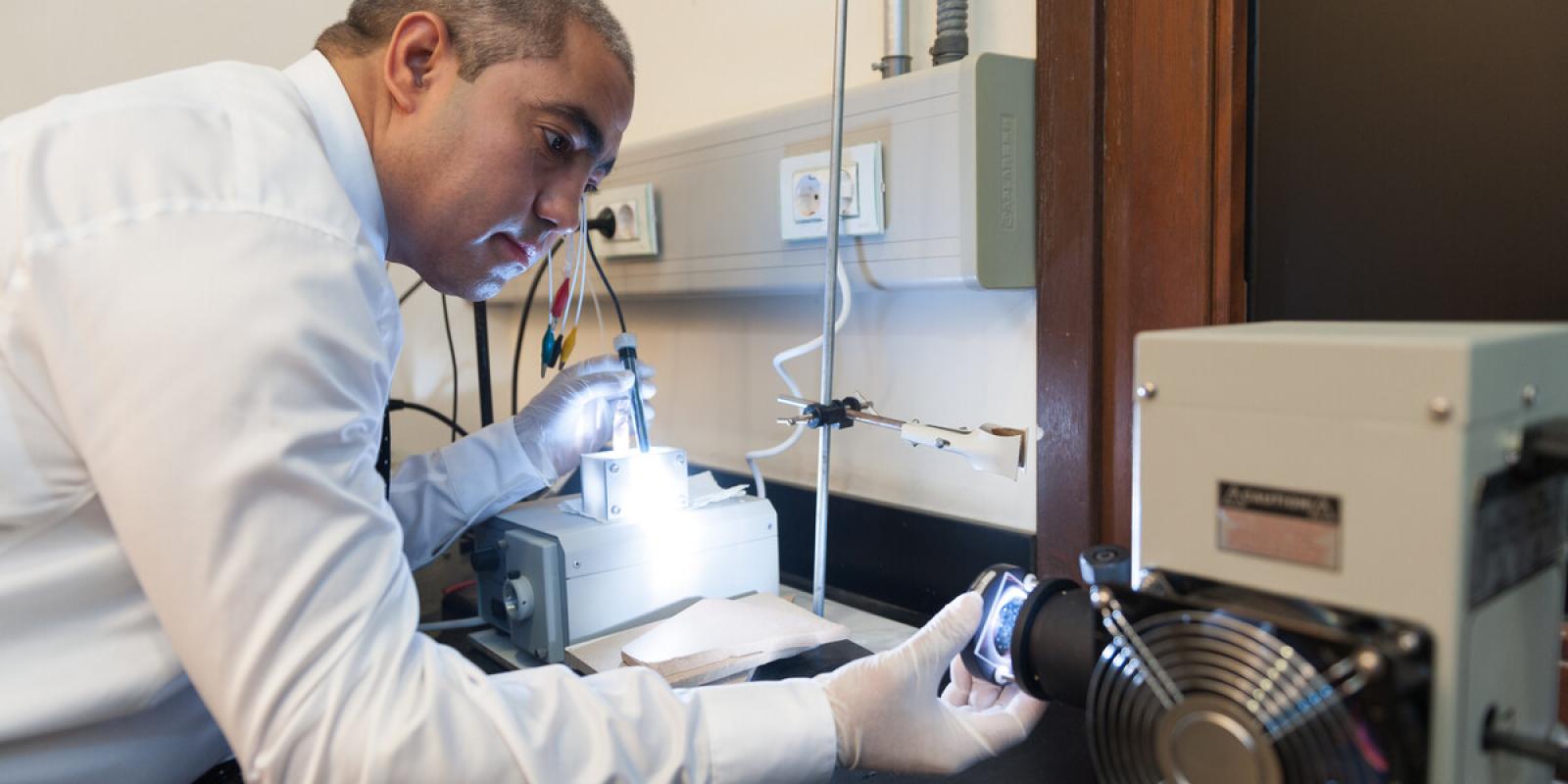
Research of AUC Professor Nageh Allam And A Team of Students on Recycling Lithium-Ion Batteries Recognized By Wiley As Top Cited
A paper on recycling Lithium- Ion (Li-ion) batteries by Nageh Allam, professor of Materials Science and Engineering at The American University in Cairo (AUC) and a team of graduate students in AUC’s nanotechnology program was recently recognized by Wiley, the global leader in publishing, education and research, as a Top Cited Article for 2020-2021. The paper was originally published last year by ChemElectroChem, one of the world’s leading academic journals in the field of energy conversion and storage.
Allam and the team have been working on innovative and safe recycling ways for Li-ion batteries. While nearly 90 % of Li-ion batteries used in cell phones, laptops, cameras and other electronic devices are recycled, they still lack a universal standard for recycling and can be dangerous if not handled correctly. According to Allam, there is, unfortunately, no protocol in Egypt to recycle spent batteries in a safe way. Throwing these batteries away, as what’s currently happening, has a detrimental environmental impact, as high temperatures can lead to thermal runaway, fire, and explosions due to the components of the batteries. In addition, these batteries contain precious metals and other materials that can be recovered, treated and reused.
The project paves the way for environmental and socioeconomic innovation in Egypt. One of the significant benefits of recycling Li-ion batteries is their usage in the manufacturing of electric cars. Electric cars help avoid oil consumption and CO2 emissions. Moreover, the electronic waste (e-waste) [from the Li-ion batteries] is a valuable resource to realize a future circular economy and sustainability. Each product has different material content and needs to be recycled differently. E-waste is a critical industry growing at about 2 million tons per year and is expected to reach 74.7 million tons by 2030.
Allam said that there are now around an estimated 16 million electric cars on the road worldwide consuming roughly 30 terawatt-hours (TWh) of electricity per year. “In 2021, electric car sales more than doubled to 6.6 million, representing close to 9% of the global car market and more than tripling their market share from two years earlier. All the net growth in global car sales in 2021 came from electric cars,” Allam said.
However, according to Allam, the progress in electric cars manufacturing is hindered by the very limited supply of the raw materials needed to manufacture the batteries, especially lithium.
"We tackled this in our paper and we succeeded in establishing protocols for the recycling of Li-ion batteries as well as extracting the raw materials in very pure form," Allam explained. "To confirm the functionality of the recovered materials, we constructed high-performance supercapacitor devices using those recycled materials. This technology would provide a new avenue to obtain the necessary raw materials to fabricate energy storage devices to realize the electric cars industry while maximizing the economic benefits of e-waste. This should have a great impact on Egypt, the region, and the whole world,” he added.
Allam, who was globally recognized as one of the top 2% most impactful scientists in the Stanford-Elsevier’s Scopus database of the most cited scientists in 2020 and 2021, is recently ranked #7 in Research.com's list of top materials scientists in Egypt in 2022. Moreover, Allam has recently won the 2022 Obada Prize for Distinguished Scientists for his multidisciplinary research on water desalination and energy conversion and storage. “This award has inspired me and my research team to continue our journey in solving complex problems that directly affect our community and the world,” he said.
The application of Allam’s research covers a span of various topics with a significant scientific and societal impact ranging from energy conversion to energy storage, water desalination and water treatment. “I do my job to build human skills and provide technological solutions to some of the critical problems we are facing,” he said.